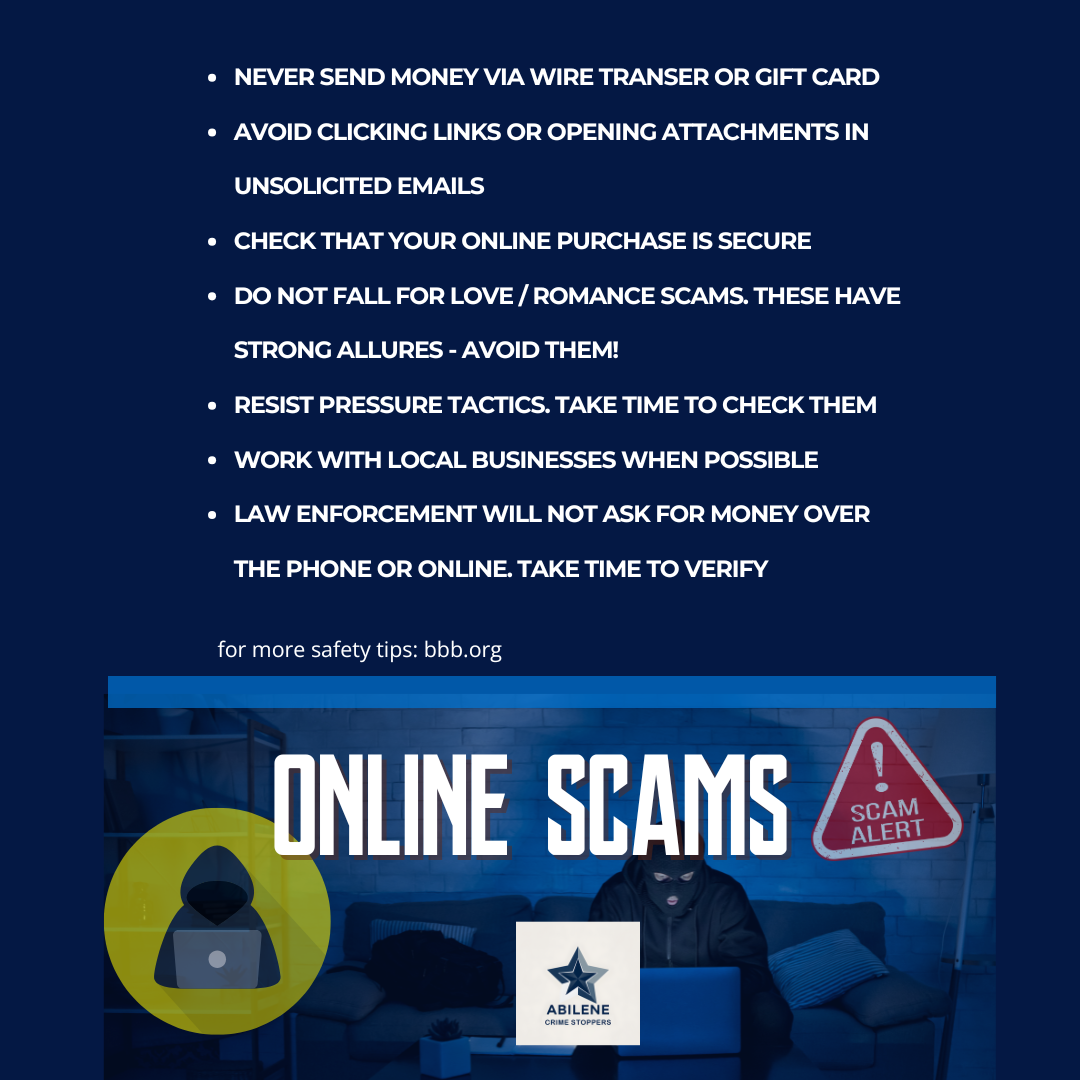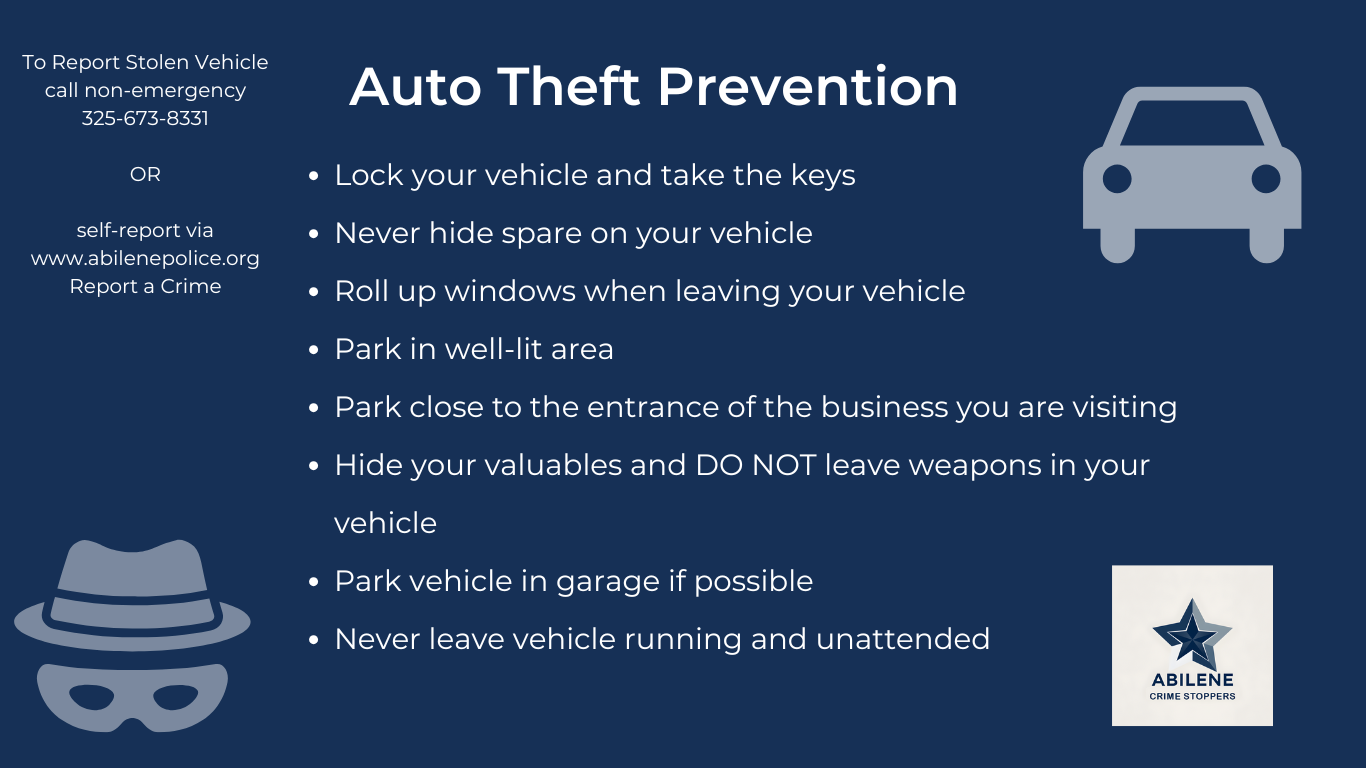Crime Awareness


![]()


Drug Use and Gang Activity
Signs of Drug Use

-
180 House, Inc. - 2102 Amy Lynn Avenue Abilene, Texas 79603 (325) 673-0180. www.180house.com The 180 House is a transitional living facility focused on drug and alcohol rehabilitation. It also houses homeless vets and makes referrals to other agencies. Rooms are furnished with beds, closets, and private bathrooms.
-
Abilene Recovery Council 104 Pine Street, Suite 205 Abilene, Texas 79601 (325) 673-2242 or 800-588-8728 www.abirecovery.org Abilene Recovery Council provides OSAR (outreach, screening, assessment, and referral) services throughout Region 2 free of charge. Other free services include the Parenting Awareness and Drug Risk Education Services (PADREs), Recovery Support Services (RSS), Prevention Resource Center (PRC), Youth Prevention Universal (YPU) Education, and Community Coalition Partnership (CCP).
-
Betty Hardwick 2616 S Clack St Abilene, TX 79606 (325) 690-5100 Crisis Line 1-800-758-3344 Mental Health and Intellectual and Developmental Disability Authority for Callahan, Jones, Shackelford, Stephens, and Taylor Counties.
- Identity through recognition
- Perception of belonging
- Peer pressure
- Intimidation
- Protection (real or perceived)
- Lack of family life
- Family ties to gangs (it is expected or acceptable to join a gang)
- Brotherhood/interpersonal bonding
- Low self-esteem
How Do Gangs Recruit Members?
Gangs influence youths into joining by using the following methods:
-
Peer pressure offers protection
-
Monetary enticements
-
Challenging kids to take risks
-
Invitations to parties where gang-related activities are occurring
-
Family members already belong
-
Affection and attention shown to the youths by gang members that may not be given at home
Short-Term Consequences
-
In trouble with law enforcement
-
Drop in performance at school
-
Withdrawal from family
-
Drug and alcohol involvement
-
“Dirty work” for the gang, earning their “bones” or “stripes”
Long Term Consequences
-
Loss of opportunities for education/employment due to criminal record
-
Time spent in jail or prison
-
Possibility of losing family or friends
-
Risk of personal injury or death
-
Risk of family members’ lives
-
Increased risk of violence in criminal activity
What Are Signs of a Gang(s) in My Neighborhood?
- Graffiti
- Increase in crime- Gang-related acts such as burglary, vandalism, and assaults.
You and your neighbors can work to eliminate gangs and drugs from your community and neighborhood. The key is organization:
- Get to know your neighbors.
- Contact Abilene Police to report any crime
- Contact Abilene Crime Stoppers to provide anonymous tips
Auto Theft Prevention

.jpg)
Serving Abilene and Taylor County
since March 1981.
Please make a Tax Deductible
donation today!
